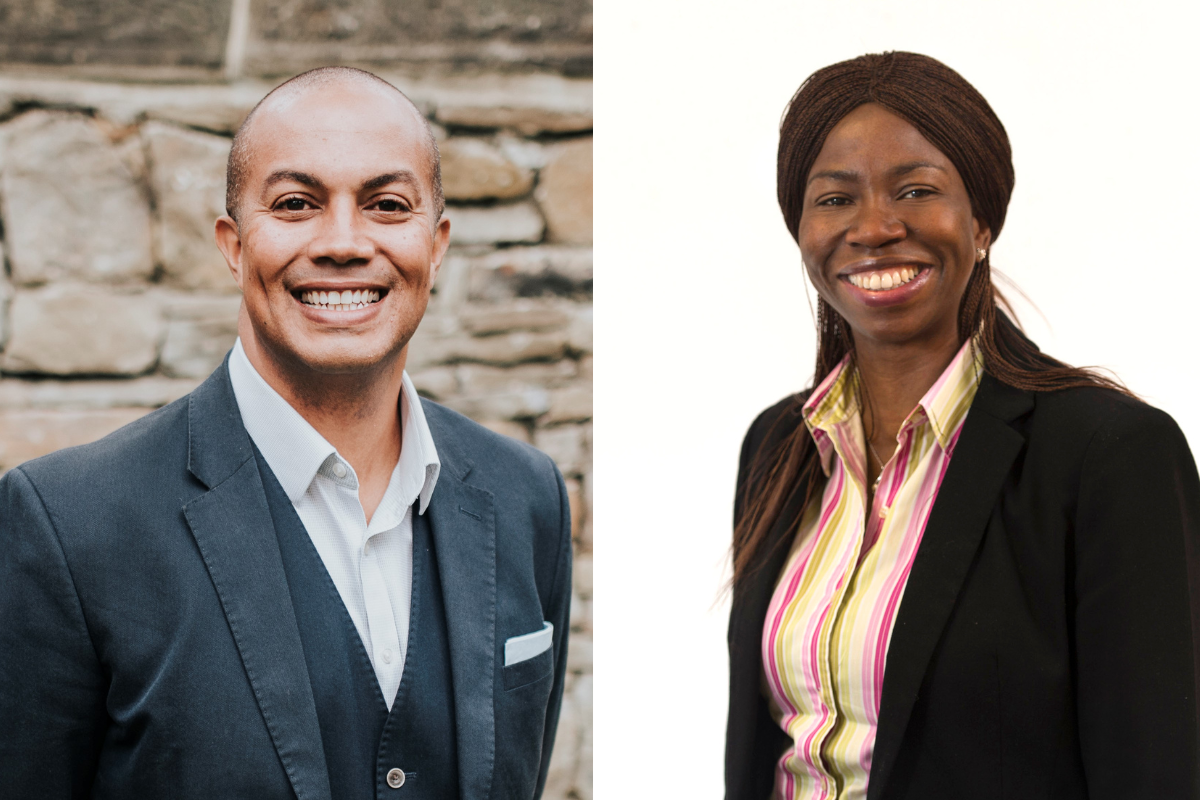
Our role as a charity is to support Sheffield’s NHS with funding that would otherwise be unavailable and with that, we aim to improve the lives of people across Sheffield.
As part of our new strategy and being more proactive as a funder, we’re making sure we get input from the most informed and influential people who can help shape our work, so that we make the biggest difference and have the greatest impact.
We have identified two brilliant people who will challenge us and help us be the best we can be.
We’re delighted to announce our new ambassadors, Professor Bola Owolabi, Director of the National Healthcare Inequalities Improvement Programme at NHS England, who is helping us to develop our approach to tackling health inequalities in Sheffield and Richard Stubbs Chief Executive of Health Innovation Yorkshire & Humber, who will support our work around maximising technology, research and innovation.
As a practising GP in the North East of Derbyshire, Bola is passionate about reducing health inequalities and is one of the leading experts in the country. She has spearheaded the NHS England Core20PLUS5 approach to reducing healthcare inequalities. This focuses support on the 20 percent most socio-economically disadvantaged communities, the ‘Core20’ plus other groups such as ethnically diverse communities, and targets five clinical areas, as well as a cross-cutting theme as priority areas for improvement.
Bola said, “When I was approached by Sheffield Hospitals Charity to be an ambassador for the reduction of health inequalities in Sheffield, I saw this as a great opportunity to get involved and lend my support to reducing health inequalities in my local community. Our shared vision is to reach those at the margins of our communities across the city. Focus is on the most socially, economically, disadvantaged people and those that we tend to forget, despite our best intentions. For example, people experiencing homelessness, or rough sleeping, asylum seekers and people living with multiple long-term conditions. Working with the charity, I can help to shape and develop projects which will improve health access, experience and outcomes for these people in relation to the biggest killers, cardiovascular disease, cancer, respiratory disease and in relation to the two things that drive the biggest differences in early mortality – mental health and maternity.”
In addition to his role as Chief Executive of Health Innovation Yorkshire & Humber, Richard is also Chair of the national Health Innovation Network, bringing together all 15 health innovation networks across England to deliver national impact. He brings together sectors and regions to accelerate the role that technology and life sciences can play in improving patient care, whilst also championing how increasing economic growth contributes to better health outcomes for communities.
Richard added, “I am honoured to support Sheffield Hospitals Charity by accepting the role of ambassador for maximising technology, research and innovation – one of four funding priorities of the charity.
My experience in working with the NHS, academic partners and health innovators will allow me to share specialist information, help to shape the charity’s approach to funding in this space and champion their work across the city. I’ve also worked closely with Bola and share her passion and enthusiasm for tackling health inequalities and within that, the digital divide which is prevalent here in Sheffield.”
About the new ambassadors Beth Crackles, Chief Executive of Sheffield Hospitals Charity said, “Health inequalities is a funding priority for us, but really, it’s not a standalone. It should underpin everything we do. It’s a privilege for the charity to benefit from Bola’s extensive expertise and networks. As part of our new strategy, our first funding call for reducing health inequalities resulted in funding for midwives to deliver antenatal classes to tackle the inequities faced by black women in childbirth, peer workers to encourage people in the Somali community to access mental health services, enhancements to A&E to provide a better experience for neurodiverse patients, outreach sessions targeting non-English speakers who are less likely to access physio services, and ‘breathe and singing’ sessions for women with COPD in the Burngreave area. All these projects map back to NHS England’s Core 20PLUS5 framework. We’re looking forward to working with Bola to deliver even more meaningful and impactful projects for the NHS and the people of Sheffield over the coming years.
We have funded many excellent research projects and innovations, working in collaboration with colleagues in the Clinial Research and Innovation Office at Sheffield Teaching Hospitals NHS FT. We’re now thinking more strategically about what we fund across technology, research and innovation, so it’s more cohesive as a programme and delivers more for Sheffield’s NHS and its patients. Richard’s contribution will be game-changing for us.
We’re looking to move from ‘bench to bedside’ - focusing on research projects that already have traction and with our support will translate into patient benefit sooner; we’re interested in where research meets innovation, which often includes technology.
As well as projects which translate into patient benefit, we’re considering what we fund that supports the infrastructure and environment for research in Sheffield to flourish.
From researching potential links between the immune system and epilepsy, to funding bone drills for less painful bone marrow extraction and virtual reality and environmental controls for spinal cord injury patients, we’re covering a lot of ground. With Richard’s input, this area of our funding will only get better.”
Published: Thursday 8th of August 2024